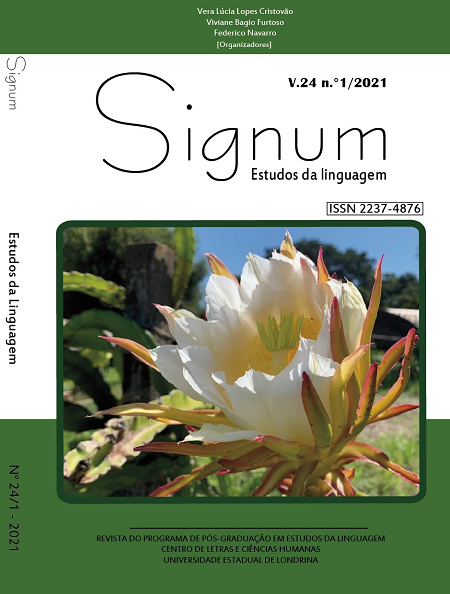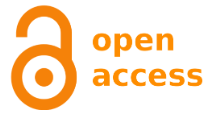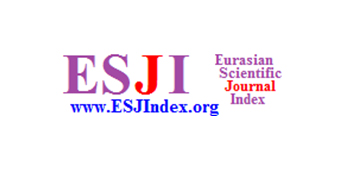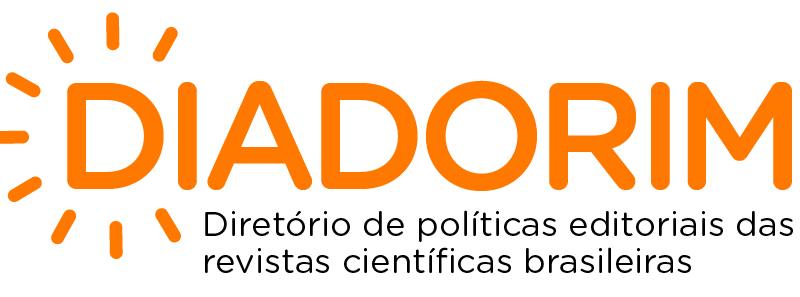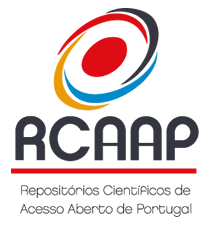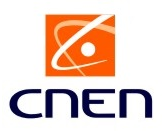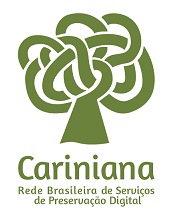Anchoring the First-Year Research Paper: a pilot study of FYW student citation practices
DOI:
https://doi.org/10.5433/2237-4876.2021v24n1p43Keywords:
First-Year Writing, Research Writing, Source-Based Writing, Information Literacy, Citations, Escritura del primer año universitario, Investigaciones sobre Escritura, Escritura basada en fuentes, Alfabetización informacional, Referencias bibliográficasAbstract
Writing Studies Scholars have raised concerns about framing student struggles to integrate secondary sources as an ethical problem of plagiarism. They propose, instead, framing student citation practices as transitional markers of development in which students use patchwriting to learn the discursive norms and values of academia. Patchwriting as a literacy tool for transfer raised questions for me whether students develop other scaffolds to aid in learning transfer. In this pilot study, I investigate student use of anchor sources, the "perfect source" that frames a student's central argument, rhetorical structure, and/or purpose. Based on a random sample of a nationwide corpus of First-Year Writing research papers, findings show that 21 of 30 research papers (70%) revealed evidence of an anchor source. Six of the 9 papers without anchor sources show evidence of significant rhetorical problems. Results suggest evidence of transfer, as well as pedagogical implications for supporting this transitional stage in student development.
Downloads
References
BEAUFORT, A. college writing and beyond: a new framework for university writing instruction. University Press of Colorado, 2007.
CRONIN, BLAISE; SHAW, D. Identity-creators and image-makers: using citation analysis and thick description to put authors in their place. Scientometrics, v. 54, no.1, 2002, pp. 31-49.
DEPALMA, M.; RINGER, J.M. Toward a theory of adaptive transfer: expanding disciplinary discussions of ''transfer'' in second-language writing and composition studies. Journal of Second Language Writing, v. 20, 2011, pp. 134-147.
DEVITT, A. Transferability and genres. The locations of composition, edited by Christopher J. Keller and Christian R.Weisser, State U of New York Press, 2007, pp. 215-27.
DIRK, K. The 'Research Paper' Prompt: A Dialogic Opportunity for Transfer. Composition Forum, v. 25, 2012.
DOWNS, D; ROBERTSON, L. Threshold concepts in first-year composition. Naming what we know threshold concepts of writing studies, edited by Linda Adler-Kassner and Elizabeth Wardle, University Press of Colorado and Utah State University Press, 2015, pp. 105-121.
DOWNS, D; WARDLE, E. Teaching about writing, righting misconceptions:(re) envisioning first-year composition as introduction to writing studies. College Composition and Communication, v. 58, no. 4, 2007, pp. 552-584.
DRISCOLL, D. L., ET AL. Down the rabbit hole: challenges and methodological recommendations in researching writing-related student dispositions. Composition Forum, v. 35, 2017, www.compositionforum.com/issue/35/rabbit-hole.php. Accessed 22 October 2019.
GEISLER, C. Academic literacy and the nature of expertise: reading, writing, and knowing in academic philosophy. Erlbaum, 1994.
GOGAN, B. Reading at the threshold. Across the disciplines, v. 10, no.4, 2013, www.wac.colostate.edu/atd/reading/gogan.cfm. Accessed 5 July 2018.
HEAD, A.J.; EISENBERG, M.B. What today's college students say about conducting research in the digital age. project information literacy progress report. The Information School, University of Washington, 2009.
HEAD, A.J.; EISENBERG, M. Truth be told: how college students evaluate and use information in the digital age, 2010, www.web20kmg.pbworks.com/f/How+College+Students+evaluate+information+Digital+Age+2010.pdf. Accessed 3 September 2018.
HIRVELA, A.; DU, Q. "Why am I paraphrasing?": undergraduate ESL writers' engagement with source-based academic writing and reading. Journal of English for Academic Purposes, v. 12, no. 2, 2013, pp. 87-98.
HOOD, C.L. Ways of research: the status of the traditional research paper assignment in first-year writing/composition courses. Composition Forum, v. 22, 2010.
HORNING, A.S. Writing and reading across the curriculum: best practices and practical guidelines. Reconnecting reading and writing, edited by Alice Horning and Elizabeth Kraemer, Parlor Press, 2013, pp. 71-88.
HOWARD, R.M. A plagiarism pentimento. Journal of Teaching Writing, v.11, no. 3, 1993, pp. 233-46.
HOWARD, R.M.; SERVISS, T; RODRIGUE, T.K. Writing from sources, writing from sentences. Writing & Pedagogy, v. 2, no.2, 2010, pp. 177-192.
JAMIESON, S. Reading and engaging sources: what students' use of sources reveals about advanced reading skills. Across the Disciplines v. 10, no.4, 2013, www.wac.colostate.edu/atd/reading/jamieson.cfm. Accessed 1 September 2018.
JAMIESON, S. What the citation project tells us about information literacy in college composition. In: Information literacy: research and collaboration across disciplines. WAC Clearinghouse and University Press of Colorado, 2016.
JAMIESON, S; HOWARD, R. M. Sentence-mining: uncovering the amount of reading and reading comprehension in college writers' researched writing. The new digital scholar: exploring and enriching the research and writing practices of nextgen students, edited by Randall McClure and James Purdy, Information Today Inc., 2013, pp. 111-133.
KARATSOLIS, A. Rhetorical patterns in citations across disciplines and levels of participation. Journal of Writing Research, v. 7, no. 3, 2016, pp. 425-452.
KECK, C. Copying, paraphrasing, and academic writing development: a re-examination of l1 and l2 summarization practices. Journal of Second Language Writing, v. 25, 2014, pp. 4-22.
LARSON, R. L. The 'research paper' in the writing course: a non-form of writing. College English, v. 44, no.8, 1982, pp. 811-816.
LLOYD, A. Information literacy: different contexts, different concepts, different truths? Journal of Librarianship and Information Science, v. 37, no. 2, 2005, pp. 82-88.
LLOYD, A. Learning to put out the red stuff: becoming information literate through discursive practice. The Library Quarterly, v. 77, no.2, 2007, pp. 181-198.
MANSOURIZADEH, K.; AHMAD, U.K. Citation practices among non-native expert and novice scientific writers. Journal of English for Academic Purposes, v. 10, no.3, 2011, pp. 152-161.
MAYER, R.E.; MORENO, R. Nine ways to reduce cognitive load in multimedia learning, Educational Psychologist, v. 38, no.1, 2003, pp. 43-52.
MEYER, J.; LAND, R. Overcoming barriers to student understanding: threshold concepts and troublesome knowledge. Routledge, 2006.
MOORE, J. Mapping the questions: the state of writing-related transfer research. Composition Forum, v. 26, 2012, www.compositionforum.com/issue/26/map-questions-transfer-research.php. Accessed 22 October 2019.
NORGAARD, R. Writing information literacy in the classroom: pedagogical enactments and implications. Reference & User Services Quarterly, v. 43, no.3, 2004, 220-226.
NOWACEK, R. S. Agents of integration: understanding transfer as a rhetorical act. SIU Press, 2011.
ODLIN, T. Language transfer: cross-linguistic influence in language learning. Cambridge University Press, 1989.
PECORARI, D. Good and original: plagiarism and patchwriting in academic second-language writing. Journal of Second Language Writing, v. 12, 2003, pp. 317-345.
PERELMAN, L. Flunk the robo-graders. Boston Globe v. 30, 2014, www.bostonglobe.com/opinion/2014/04/30/standardized-test-robo-graders-flunk/xYxc4fJPzDr42wlK6HETpO/story.html. Accessed 19 September 2018.
PERKINS, D. N.; SALOMON, G. Teaching for transfer. Educational Leadership, v. 46, no. 1, 1988, pp. 22-32.
REIFF, M. J.; BAWARSHI, A. Tracing discursive resources: how students use prior genre knowledge to negotiate new writing contexts in first-year composition. Written Communication, 2011, v. 28, no.3, pp. 312-337.
ROBERTSON, L.; TACZAK, K.; YANCEY, K. B. Notes toward a theory
of prior knowledge and its role in college composers' transfer of knowledge and practice. Composition Forum, v. 26., 2012.
ROGERS, P. The contributions of north American longitudinal studies of writing in higher education to our understanding of writing development. Traditions of writing research, edited by Charles Bazerman et al., Routledge, 2009, pp. 365-377.
SCARDAMALIA, M.; BEREITER, C. Knowledge telling and knowledge transforming in written composition. Advances in applied psycholinguistics: vol. 2. reading, writing, and language learning, edited by Sheldon Rosenberg, Cambridge University Press, 1987, pp. 142-175.
SCHIEBER, D. L. Invisible transfer: an unexpected finding in the pursuit of transfer. Business and Professional Communication Quarterly, v. 79, no. 4, 2016, pp. 464-486.
SHAUGHNESSY, M. P. Errors and expectations: a guide for the teacher of basic writing. Oxford UP, 1979.
SHI, L. Common knowledge, learning, and citation practices in university writing. Research in the Teaching of English, v. 45, no.3, 2011, pp. 308-334.
STINNETT, J.; RAPCHAK, M. Research, writing, and writer/reader exigence: literate practice as the overlap of information literacy and writing studies threshold concepts. Literacy in Composition Studies, v. 6, no. 1, 2018, pp. 62-80.
TACZAK, K. The question of transfer. Composition Forum, v. 26, 2012, www.compositionforum.com/issue/26/question-of-transfer.php. Accessed 22 October 2019.
TVERSKY, A.; KAHNEMAN, D. Judgment under uncertainty: heuristics and biases. Science, v. 185, no. 4157, 1974, pp. 1124-1131.
VALENTINE, K. Plagiarism as literacy practice: recognizing and rethinking ethical binaries. College Composition and Communication, v. 58, no.1, 2006, pp. 89-109.
WARDLE, E. Creative repurposing for expansive learning: considering 'problem-exploring' and 'answer-getting' dispositions in individuals and fields. Composition Forum, v. 26, 2012, www.compositionforum.com/issue/26/creative-repurposing.php. Accessed 22 October 2019.
Downloads
Published
How to Cite
Issue
Section
License
Copyright (c) 2021 Signum: Estudos da Linguagem

This work is licensed under a Creative Commons Attribution-NonCommercial-NoDerivatives 4.0 International License.
This journal reserves the right to make, in the originals, normative, orthographic and grammatical modifications in order to maintain the standard language and the credibility of the publication. It will respect, however, the authors' style of writing. Modifications, corrections and suggestions of conceptual order will be forwarded to the authors, if necessary. In these cases, the papers, once appropriate, should be submitted to a new appreciation. The final examinations will not be forwarded to the authors. Works published become property of Signum, being its total or partial reprint subject to an explicit authorization of the journal. In all subsequent quotes the original source of publication should be mentioned, in case, in Photographic Discourse. Opinions emitted by the authors are their exclusive responsibility.